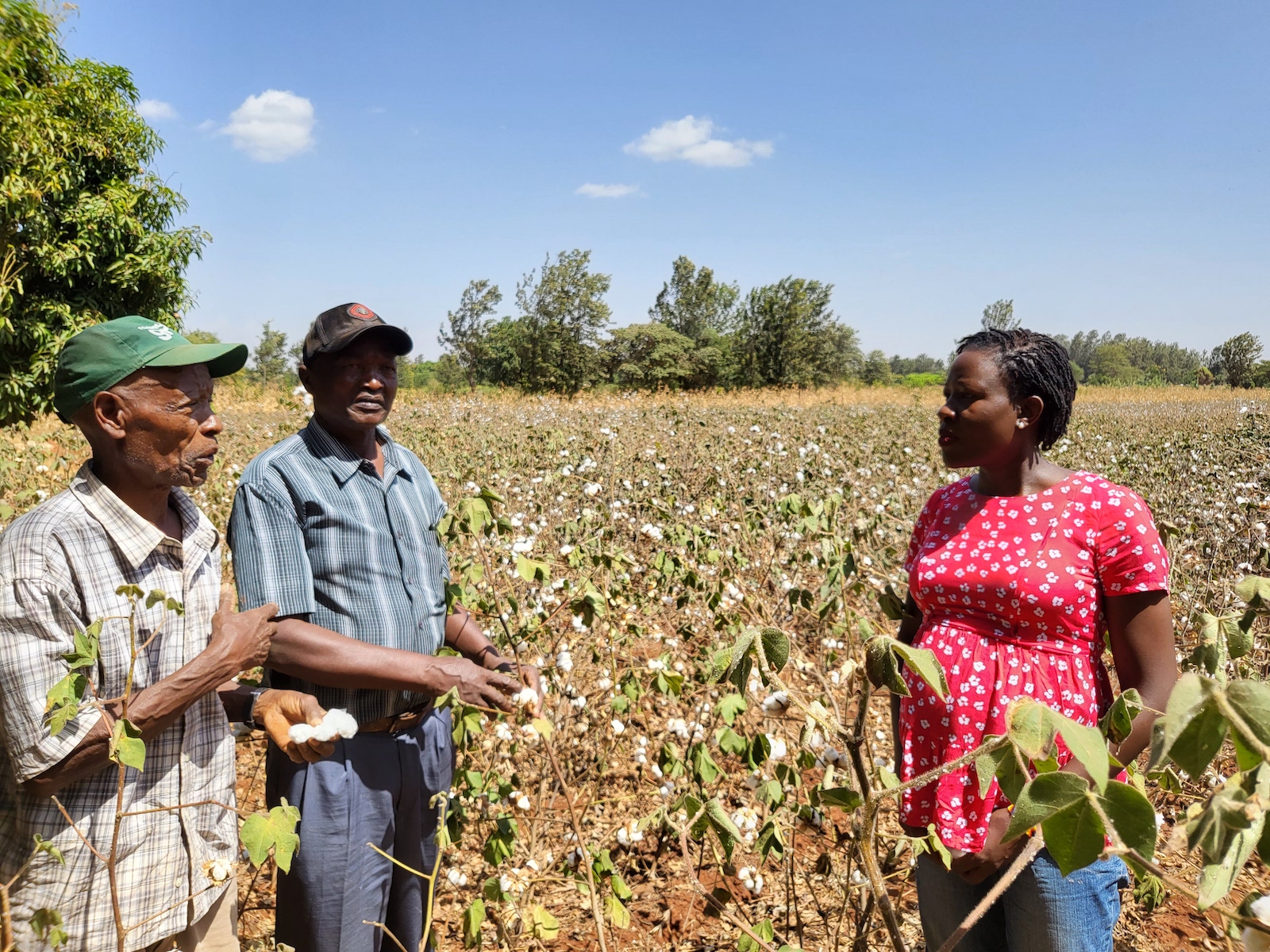If I had not been a seasoned long-distance driver who hails from a country with more potholes than road, I would not have reached the Bt cotton farmers in Kenya that Daniel Magondu wanted me to meet.
The journey took me almost 70 kilometers inland, which on a murram [gravel] road feels like 200km. I was starting to feel like a hero until Magondu mentioned that he often visits farmers in this area on a motorbike and previously used a bicycle.
Magondu is a graduate of the farmer training course that the Alliance for Science and Global Farmer Network conducted in Rock City, Illinois, back in 2018. One objective of these trainings is to empower farmers to raise their voices and those of other farmers to bring about the agricultural sector changes they desire in their countries.
Though Magondu did exactly that when he returned to Kenya after the training, it was not the beginning of his advocacy work.
Farming was a natural choice for Magondu, whose father also grew cotton, among other crops. Magondu, a 67-year-old father of five, owns three acres of land on which he practices mixed farming. In 2017, he attended a workshop organized by ISAAA, listening as Kenyan scientists talked about their biotechnology research, some of which was stalled in laboratories because the government had banned genetically modified (GM) crops.
“I asked myself and fellow farmers in attendance, why should we keep sharing our sweat with pests and diseases yet there are crops that are resistant to them and can provide a solution?” That question was the birth of SOBIFAK — Society for Biotechnology Farming of Kenya — which advocates for incorporating new agricultural tools, including GM crops, into Kenya’s agricultural system. Magondu knows these new tools can help increase production and protect farmer yields from pests and diseases.

Shortly after that ISAAA workshop and the formation of SOBIFAK, Magondu attended the Alliance training in Illinois. “I learned about grassroots mobilization and leadership. On return, I purposed to grow SOBIFAK. Following the snowflake model, we created nodes. Each node is headed by a farmer who is responsible for 20 to 30 farmers. If a node grows too big, we divide it up and another node with a new leader is created,” he explained. Today, SOBIFAK covers 24 cotton growing counties in Kenya.
Magondu and his initial team of 20 farmers also wrote a petition protesting the ban on GM products and delivered it to Deputy President William Ruto.
In the petition, “we pleaded for three things: Allow our national researchers to continue with trials and commercialization of Bt maize and other GM crops; lift the ban on importation of GM products; and facilitate the commercialization of Bt cotton,” Magondu said.
The 20 farmers signed the petition and affixed their pictures. Magondu then cut through bureaucratic hurdles to get the petition to Kenya’s minister of agriculture, who delivered it to the VP. In 2020, Kenya officially allowed the commercialization of Bt cotton and farmers like Magondu are now on their second harvest.
Magondu’s brilliant advocacy strategy is based on the snowflake model and reaching those who really need biotech solutions.
“I focus on farmers in dry lands where crops like maize and rice do not do well,” he said, which explained why I had to drive nearly 100km inland, past dried-up streams, sun-scorched maize fields and miserable looking cows to reach Magondu’s farmers. “I tell them about Bt cotton and its benefits, such as pest resistance and drought tolerance.”
Almost every cotton farmer one talks to in Kirinyaga County attributes their adoption of Bt cotton to Magondu’s relentless encouragement and information dissemination. His long journeys along the muddy or dusty murram road, depending on the season, clearly paid off. As he said in conclusion, “One cannot lead themselves. It is farmers in these far-flung areas that attest to the success of my grassroots mobilization, commitment to improved yields and incomes and incorporation of GM tools in our agricultural system.”
